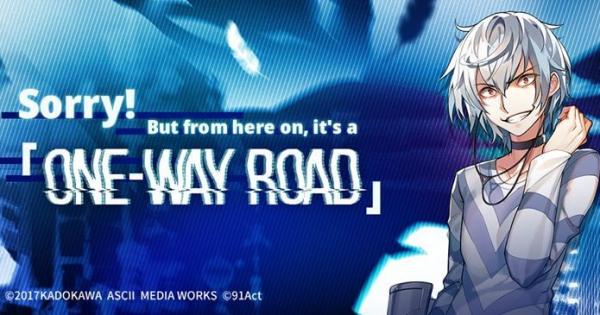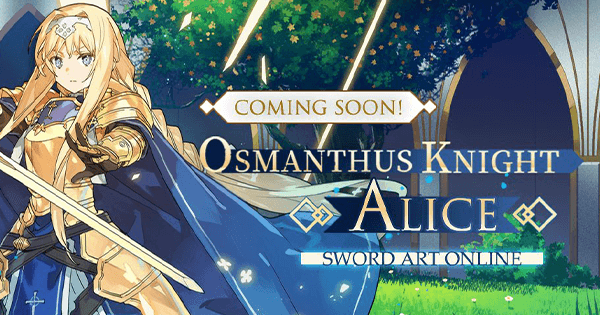Crossing Void: SEA Closure - Why It Doesn't Necessarily Mean Global Closure, And More

- Today Dengeki Bunko Crossing Void SEA announced the upcoming shutdown of its game servers.
- 91ACT has announced that they will be opening the Global server to the SEA region in Spring of 2020
- This announcement has players of both regions upset, concerned, and with questions.
- We try to provide some insight on the common questions.

Crossing the Void from Global to SEA
Today Dengeki Bunko Crossing Void SEA announced the upcoming shutdown of its game servers. They will be shut down as of Feb. 20th, 2020 11:00 (UTC+8), and players can request to transfer any remaining paid in-game currency to a different game published by 37Games. 91ACT has announced that they will be opening the Global server to the SEA region in Spring of 2020.
This announcement has players of both regions upset and concerned. Some of the common questions are:
-
Why does CV not let me transfer my game from SEA to Global?
-
Why are they waiting until Spring of 2020 to open the global servers to SEA?
-
Does this mean Global is likely to shut down as well?
To get insight into these questions, first we need to understand the difference between a developer and a publisher, their relationship with each other, and the different roles they play.
Developer Vs Publisher
Crossing Void SEA and Crossing Void Global have the same developer, but different publishers. Both versions are developed by 91ACT. However, the SEA version is published by 37Games, where for the global version 91ACT published the game themselves.
So what is the difference between a publisher and a developer? Here is the answer as described by Founder and CEO of Pulse Interactive and Replay Games, Paul Trowe:
Many people are unclear about the positions of “developer” and “publisher” in relation to video games. Developers often choose to self-publish the video games they create, while some large publishers have developers working for them.
Usually, the core difference between video game developers and publishers is that developers are responsible for creating the video game while publishers are responsible for marketing, sales, and PR of it. Most creative talent in a game comes from the developers. They get the idea for a game and have a team of artists, programmers and designers create the details of how the game will look and feel.
When developers have an idea and some concept art, they often go to publishers to pitch their game. When publishers like a game, they may fund it and then create milestones for its production. As the game nears completion, publishers market and distribute the final product.
And here, a job description of a game publisher on a career search website:
A Game Publisher finances a video game’s development, handles the marketing and release of the game, and gets the returns on its sales. When you’re a Game Publisher, the games you publish can be made by an in-house staff or external Game Developers, but either way your responsibilities stay the same: You manage the business end of the gaming field.
Your daily duties as a Game Publisher could include negotiating distribution deals, designing advertising campaigns, conducting market research, and clearing any licensing issues a game has. You also weigh in on the creative decisions made in the game development process. A lot of times this causes tension between you, who has a focus on market appeal, and the Game Developers, who want artistic freedom. But you write the paychecks, so your say in creative decisions usually wins out.
Developers might resent this heavy-handed control, but it is very difficult to develop on a large scale without working with you. For though video gaming started out as a fairly accessible field, the increase in computer power and graphics has scaled up the man power and resources needed to produce a video game. This creates cost barriers to making it big in the mainstream market, so if Developers want their game to be a best-seller they need your resources to sustain and market their product.
In short, the developers are the ones that make the game, and publishers are the ones that finance, market, and distribute it. With localization projects, it appears, this is usually spearheaded by publishers as well.
Back to the Questions!
Q: Why does CV not let me transfer my game from SEA to Global?
Since SEA and Global have different publishers, they are likely housed on different servers, and the purchases made on those servers went to their respective publishers. In other words, if you spent money on SEA, that money went to 37Games. Why should the Global publisher, 91ACT, incur the costs involved with transferring data/progress to global when they didn’t get any of the benefit of those purchases to begin with? Also, if there were differences in rates, bonuses, campaigns, etc for specific characters, this could lead to different players not having equal access to characters.
Q: Why are they waiting until Spring of 2020 to open the global servers to SEA?
SEA isn’t closing until February 2020. Developers and publishers will have a legal contract written up between them that determines all sort of things. Almost certainly one of those things in this case, is that the developer can not work with a competing publisher in the same region while the original published game is alive (even if that publisher is the developer themselves). So, most likely, the answer is that Global is launching in the region as soon as they are legally allowed to.
Q. Does this mean Global is likely to shut down as well?
As I am not a fortune teller, there is no way I can guess an answer to this question. However, what we CAN say, is that the SEA version has been run A LOT differently than the Global one so far, as can be seen by player feedback here and here. The Global community has had its share of issues too, however, as they recently had a pity rate problem, the resolution of which has not satisfied all players. The bottom line is all we can say for sure: There is no way to know exactly how long CV global will live. However, since SEA and Global are different publishers, and SEA seemed to be handling things much differently, there is no reason to believe that the death of SEA means the death of Global.






